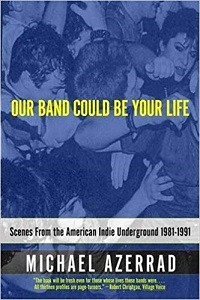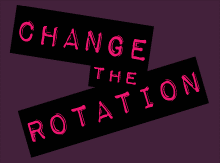Punk Rock Book Club: Michael Azerrad's Our Band Could Be Your Life
Steve O - June 21, 2019

Michael Azerrad’s Our Band Could Be Your Life: Scenes from the American Indie Underground 1981-1991 is an exhaustive tour through some of the most prominent independent punk bands of the 80s – Black Flag, Minor Threat, Minutemen, the Replacements, Hüsker Dü, Sonic Youth, Big Black, Fugazi and more. Yeah, I don’t really care much about Dinosaur Jr or Beat Happening or Butthole Surfers, but their stories are fascinating nonetheless, and in the case of the Butthole Surfers absolutely hilarious. Azerrad charts the origins of these bands, how their leading figures discovered the punk scene, up through the point the bands called it quits or jumped ship to a major label. This accompanies the tales of tours, recording, befriending like-minded bands, extensive drug use, intra-band conflicts, and the founding of labels like SST, Dischord, Sub Pop, and Touch & Go.
Amongst the amalgam of characters involved, a couple themes stand out. One of these is friendship and support of the scene. The section about a band being helped out by Sonic Youth becomes almost a guarantee to show up in the second half of the book (maybe I should give them another shot). Five of the bands discussed had records released by SST. All were instrumental in helping construct this nascent network across the country, passing along helpful information about the places they discovered on tour. While the volatile rock & roll personalities are present, perhaps none more so than in Dinosaur Jr, the strong ties of friendship show up throughout, from Ian MacKaye and Henry Rollins (seriously, how cool is it that these two legends are still buddies?) to the almighty pairing of Minuetmen’s Mike Watt and D. Boon.
The idealism of punk rock is also a major theme. There is no questioning the punk cred of people like MacKaye or Steve Albini and Minuetmen’s “jamming econo” is a lasting virtue of the era. Both Boon and Watt detested their skills being used in the commercial world; “punk rock was a godsend for their ethics” (69). Bob Mould missed the counterculture of the Sixties, MacKaye held it up as the ideal blueprint for a better world, and distaste for conformism is weaved throughout. Perhaps none of the idealism is better relayed than in the Fugazi chapter, to the surprise of absolutely no one, given their adherence to all-ages shows, $5 cover, and all around DIY attitude.
That hesitancy to blindly follow rears its head most clearly in the fact that virtually every one of these vignettes relates how the major figures were just weird kids – they did not fit in with a larger culture and instead made their own. Pick a major figure out and there is some way they just did not fit in. Greg Ginn: “Preferred to write poetry and do ham radio. A generation later he would have been a computer nerd” (15). Rollins faced “parental and social neglect [which] had left him angry and alienated as hell” (34). Boon and Watt: “Boon was a history buff and both were big fans of geopolitical board games like Risk. [Editor’s note: I probably would’ve enjoyed hanging out with these guys.] Watt graduated near the top of his class” (64). Paul Westerberg attended a Catholic school for problem kids. The Butthole Surfers were freaks from Texas. Albini was “scrawny, bespectacled, and too smart for his own good” (313). Santiago Durango emigrated from Colombia and his “Hispanic background ensured outcast status” (317). J Mascis admits to being “a weird kid” (347). As MacKaye says, “we were misfits, we were people who were looking for a tribe – we didn’t feel comfortable in society, so we were looking for our own society” (142). Our Band Could Be Your Life is basically the guidepost to how a bunch of punks created that society.
On top of all that, this is basically required reading in the written history of punk. Where Please Kill Me leaves off, Our Band Could Be Your Life takes off. Azerrad gets buy-in from pretty much all the players in the bands he covers. And while it’s a longer read, it flies by, as you get completely encompassed by the stories here. Go check this one out, you’ll enjoy it, even if you’re not super into all the bands.
